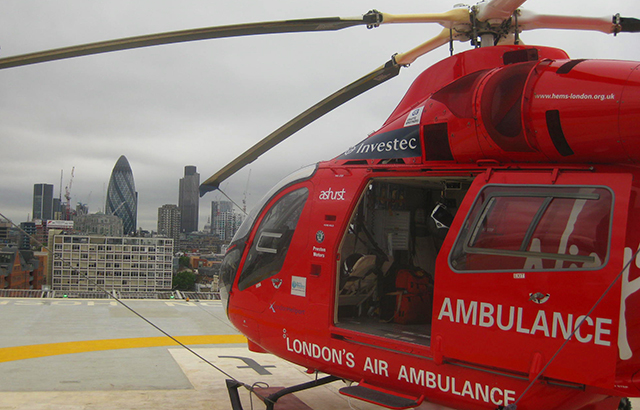£2.4 million awarded for international trial on major traumatic bleeding
Queen Mary University of London (QMUL) and NHS Blood & Transplant have been awarded £2.4m from the National Institute for Health Research and Barts Charity to carry out a large multi-centre clinical trial to evaluate a new treatment in major traumatic haemorrhage

The grant has been awarded to QMUL’s Centre for Trauma Sciences (C4TS) to run the CRYOSTAT-2 trial. The trial will look into whether more lives can be saved through the early delivery of cryoprecipitate - a concentrated source of fibrinogen, which is a protein found in the blood that helps stop bleeding by forming blood clots.
The trial will compare this treatment with standard blood transfusion therapy on 1,544 severely bleeding trauma patients at all Major Trauma Centres across England and selected partners in North America and Australia.
Cryoprecipitate is already used as a treatment for patients with major bleeding, however, transfusion typically occurs late (three hours or more) after arrival in the Emergency Department. CRYOSTAT-2 will instead look into the effect of delivering cryoprecipitate within 90 minutes of admission.
Principal Investigator Dr Ross Davenport from QMUL’s C4TS said: “Major haemorrhage is the most common preventable cause of death in the trauma population, with most deaths occurring within the first six hours after injury. As many as four in every 10 patients affected by severe trauma die from uncontrolled bleeding.
“C4TS research to date has shown that low fibrinogen levels on admission to hospital are predictors of early mortality in trauma patients. Fibrinogen is a blood protein essential for forming clots and replacing it early with specific fibrinogen-rich blood transfusions may save lives. This will be the first national transfusion study in the UK since trauma networks were established in England and Wales. Improved transfusion practices have the potential to save millions of lives globally.”
The trial will recruit the first patients from July 2017, if not before, and run for 36 months.
More information
- Find out more about QMUL’s postgraduate degrees in trauma sciences.
- Cryostat Trial (Early cryoprecipitate in trauma)